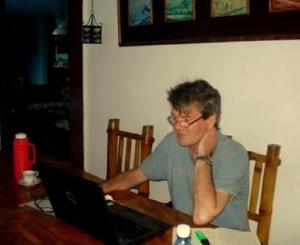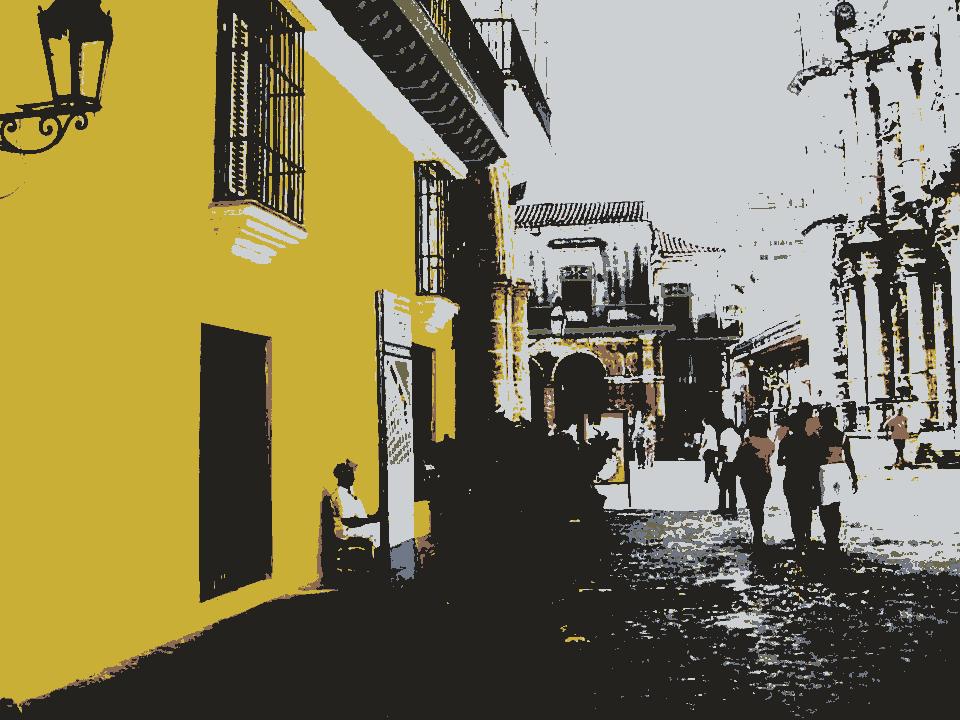“Distraction is the barrier through which a writer must force his way.”
Saul Bellow
Saul Bellow, in a lecture at Oxford University, said that a typical ‘quality’ newspaper, the London or New York Times, for example, contained considerably more information in one day than even an educated Elizabethan absorbed in an entire lifetime:
“I suspect that an Elizabethan was less confused by what he saw. He would certainly have been less agitated than we are. His knowledge cannot have laid him so close to the threshold of chaos as ours.”
That was in 1990, the Dark Ages in technological terms. How much more information do we absorb today, with the 24 hour bombardment from television, the Internet, Smartphones, iPads, radios and the printed media? More than we are designed to absorb? Can writers rise, clear-headed, above the fray and actually observe their world dispassionately before relating it back coherently to readers and, if they can, will their views be obsolete as quickly as a new phone?
Saul Bellow considered himself above the fray. Although he admitted to a certain daily addiction to ‘the news’, he was more concerned with how to get through to an increasingly distracted audience,
“The concern of tale-tellers and novelists is with human essences neglected and forgotten by a distracted world.”
Surely even Bellow, who died in 2005, would struggle against distraction today.
In 2008 Nicholas Carr wrote an article entitled Is Google Making Us Stupid? Much has been written since on this and related topics, indeed Carr expanded his article into a book, and then another, but I believe this early, brilliant and perceptive article provides most of what we need to know. Carr claimed that the Internet
“…is chipping away my capacity for concentration and contemplation. My mind now expects to take in information the way the Net distributes it: in a swiftly moving stream of particles. Once I was a scuba diver in the sea of words. Now I zip along the surface like a guy on a Jet Ski. I now have almost totally lost the ability to read and absorb a longish article on the web or in print.”
Carr cites a study of visitors to the British Library research sites, which provided access to journals, e-books and other sources of written information. It was found that people exhibited:
“…a form of skimming activity, hopping from one source to another and rarely returning to any source they’d already visited. They typically read no more than one or two pages of an article or book before they would bounce out to another site. Sometimes they’d save a long article, but there’s no evidence that they ever went back and actually read it.”
Users would,
“power browse horizontally through titles, contents pages and abstracts going for quick wins. It almost seems that they go online to avoid reading in the traditional sense.”
Rolling news requires that the viewer watch and listen to material that has been repeated hundreds of times already, and is being constantly repeated elsewhere, while also reading about ‘breaking news’ being transmitted in text across the screen, probably with a view of a busy newsroom in the background where newshounds scurry back and forth, dedicated to providing the viewer with news of everything that is happening in the world, as it happens.
Mastering the delights of technology gives the illusion of control. But, for many, is it just an avoidance of life ‘out there’ rather than participation within it? We have the illusion that we are on top of everything, but what, apart from the ability to use gadgets, do we have control of? Since succumbing to a Smartphone I’ve found distraction has increased ten-fold, where once I was available only to calls and texts, now I’m available for everything – always.
Henry James advised writers
“to try to be one of those people on whom nothing is lost.”
Wise and true, I believe, but an Einstein-like big brain is now needed to hold and make some sense of all the information available.
Michael Foley wrote in his excellent The Age of Absurdity (2010) that
“My television and laptop both behave as though they are on first name terms with their owner and have intimate knowledge of his personality and tastes. Nowhere is safe now. I visit my dentist where for, for decades, there has only been dog-eared magazines with missing covers and find a music centre behind the reception desk, a television in the waiting room and a radio playing in the surgery.”
***
When Harper (Nellie) Lee and Truman Capote were researching Capote’s In Cold Blood, his ‘factual’ novel about the murder of a wealthy Kansas farmer, his wife and two of their children, they took thousands of pages of notes, interviewing and often befriending residents in their homes. They encountered an unanticipated problem: trying to keep people’s attention away from the TV,
“The nuisance of manic commercials in the background tested Nelle’s and Truman’s patience, especially when the whole point of an interview was to try to talk intimately with someone.”
NBC had recently begun broadcasting from Garden City. It was 1959. Neither Lee nor Capote owned a TV because
“It interferes with work.”
The average American is now subjected to over 3000 advertisements per day. The rest of the world cannot be far behind.
Distraction is nothing new: Virginia Woolf’s dress could be so careless that, according to Quentin Bell, her
“drawers would literally fall down”
and on one occasion,
“everything dropped”
as she was saying goodbye to guests at the door. GK Chesterton once sent a telegram to his wife, saying
“Am in Kettering. Where am I supposed to be?”
Of course their distraction was of a different kind: internal; they had both probably been mentally composing an essay or a novel at the time – this is the internal distraction of the quintessential artist, not the external distraction of modern life.
So how can writers overcome not only today’s distraction of 24 hour information but the noise that accompanies it?
In the 1880s the French poet Jules Laforgue believed that
“the modern world has embarked on a conspiracy to establish that silence does not exist”
and, like Proust, soundproofed his room with cork. Kafka thought that:
“One can never be alone enough when one writes, why there can never be enough silence when one writes, why even night is not night enough.”
NM
“I used to have a little studio in Brooklyn, a couple of blocks from my house – no telephone, not much else. The only thing I ever did there was work. It was perfect. I came in ready to sit at my desk. No television, no way to call out. Didn’t want to be tempted. There’s an old Talmudic belief that you build a fence around an impulse. If that’s not good enough, you build a fence around the fence.”
Wordsworth said that poetry comes from emotion recollected in tranquillity. The tranquillity available to him may have gone forever, but it does not mean that it cannot be found. I find I have to go to expensive extremes to get any serious writing done. I must have some form of peace to write. I don’t need to be distracted to be diverted from writing. I can do that by myself. If there were an Olympic discipline in prevarication, I’d have a great chance of a medal – although that might be an event with a poor turnout. I planned and wrote by book from home, completed a synopsis and a few chapters and sent them away. When a literary agency told me that they would find me an agent if I could turn my draft into 300 pages of flowing text, I knew there was only one way to do it: get on a plane and go somewhere where I might be able to work without distraction.
The first half of Caliente was written in the garden of a cottage in Bali, the second half at a villa in Havana. An expensive and indulgent way to get one’s writing done, I agree, but it wouldn’t have happened otherwise. I can’t blame technological distraction entirely for that, but escaping it was nevertheless a part of the process; in neither place did I log on to the Net apart from morning emails from an Internet café in Bali, and in Havana from hotels with Internet access. I left my phone at home. I don’t regret my decision. I wanted to get the book written and I would have done anything to achieve it.
 My second book will take shape during August, in Havana. It will be extremely hot so I will spend the days in air conditioned isolation while I write for 6 to 8 hours per day, before enjoying a cooler, well-earned night out with friends. To complete the book I will probably need to find peace and isolation again. That peace might need to be found closer to home – a cottage in Wales perhaps – and more frugal writing sites may soon become a necessity. Like Michael Foley, I find much of modern life absurd. I have to escape from it before I can write about it.
My second book will take shape during August, in Havana. It will be extremely hot so I will spend the days in air conditioned isolation while I write for 6 to 8 hours per day, before enjoying a cooler, well-earned night out with friends. To complete the book I will probably need to find peace and isolation again. That peace might need to be found closer to home – a cottage in Wales perhaps – and more frugal writing sites may soon become a necessity. Like Michael Foley, I find much of modern life absurd. I have to escape from it before I can write about it.


